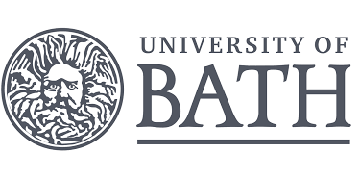University of Bath: FSA and UKRI join forces with the public to explore food safety
The Food Standards Agency (FSA) and UK Research and Innovation (UKRI) are awarding a total of £200,000 to fund six projects to bring the public and researchers together to investigate food standards challenges.
These citizen science projects include exploring the bacteria on home grown produce, parents testing the safety of baby formula, and people with food hypersensitivities analysing the allergens in food bought online. A project focusing on engaging food hypersensitive communities is led by psychologist Professor Julie Barnett of the University of Bath.
The vision for this pilot research is to use citizen science to identify the best ways of supporting people with food hypersensitivity to make safe and informed choices when they are eating food prepared outside the home. The team plan to recruit food hypersensitive citizens and those that represent them, to decide the best ways of collecting and logging information about their eating out experiences.
Through the project they will collect data all about people’s experiences of eating out, and use this insight plus the views of the citizen science community, to shape emerging policy and practice.
Professor Barnett explained: “It is fantastic to have the chance to conduct this interesting project, collaborating with Dr Ian Thornhill – an expert in citizen science – and importantly, charity and advocacy organisations that support people with food hypersensitivity, and individuals representing industry and allergy medicine.”
All of the funded projects are linked to the FSA’s Areas of Research Interest themes, covering issues such as antimicrobial resistance (AMR), food hypersensitivity and food safety and hygiene in the home. The funding was delivered in collaboration with the Biotechnology and Biological Sciences Research Council (BBSRC) and the Economic and Social Research Council (ESRC), both part of UKRI. It is part of a wider effort to coordinate activities and develop a joined-up approach to tackle the challenges of maintaining safe food in the UK.
Citizen science projects put the public at the heart of the research process. Rather than being the subjects of the research, citizens are actively involved in collecting and analysing data, and even deciding what questions they want to ask and co-developing the approaches with researchers. Citizen science gives participants the opportunity to directly contribute to scientific research and influence policy.
Professor Robin May, Chief Scientific Advisor for the FSA said: “I’m delighted that the FSA is supporting these exciting citizen science projects across the country. In addition to delivering invaluable data, these projects will allow the communities we serve to help build the evidence on which policy decisions are made. We are committed to using science and evidence to tackle the latest food-related issues and citizen science is a fantastic way of doing this.”
Professor Melanie Welham, Executive Chair at BBSRC said: “Ensuring the sustainable production, integrity and safety of our food are critical challenges that require different disciplines to work together to develop new approaches and novel solutions. BBSRC recognises that public dialogue and engagement around food is an essential part of that and these citizen science projects can demonstrate the power of involving the public in scientific research and make important contributions to maintaining the integrity of our food system.”
Tom Saunders, Head of Public Engagement at UKRI added: “UKRI is committed to breaking down the barriers between research and society and one way we can do this is by enabling the public to be actively involved in research. These exciting citizen science projects will support people from outside of the research and innovation system to bring their lived experience and unique perspectives into the research process, tackling important issues around food safety and standards. We look forward to sharing the outcomes and lessons from these projects with policymakers and the Research and Innovation community.”

